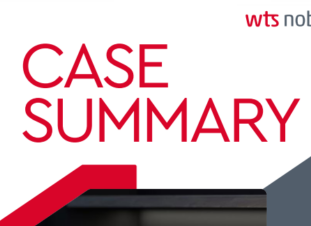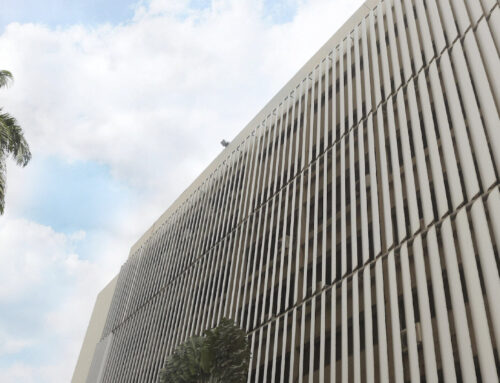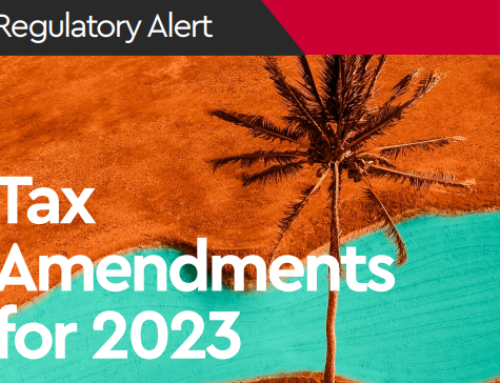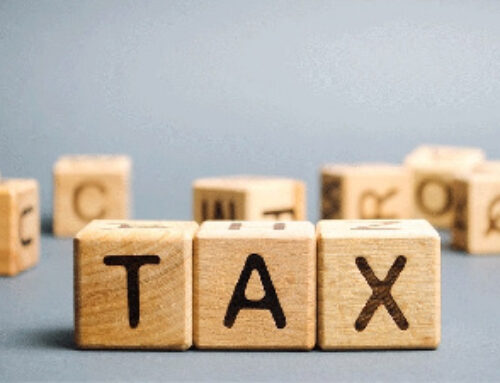CASE SUMMARY
On 7 April 2022, the Court of Appeal dismissed an appeal brought against a judgment of the High Court, Commercial Division by Fan Milk Ghana Limited vs. Ghana Revenue Authority in respect of a tax dispute. This case is an appeal against the decision of the High Court, Commercial Division which affirmed the tax decision of the Ghana Revenue Authority (GRA) imposing a withholding tax liability of GHS 7,655,676.22 on Fan Milk Ghana Limited (Fan Milk).
Factual Background
The accounting books of Fan Milk were audited for the period of 2014, 2015 and 2016 for tax purposes by the GRA, the statutory body for tax administration in Ghana. The GRA, based on the tax audit report imposed a tax liability of GHC 7,655,676.22 on Fan Milk for failure to withhold taxes on payments it made to independent purchasers/contractors from 2014 to 2016. According to the GRA these payments where indeed commissions and not discounts (as claim, thus Fan Milk was enjoined, as provided by the Income Tax Act, 2015 (Act 896), to withhold tax on the various sums paid to the independent purchasers/contractors and pay same to the GRA. Fan Milk Ghana Limited, dissatisfied with the decision of GRA objected to it and in accordance with law paid 30% of the imposed tax liability. However, the objection was dismissed by the GRA. Fan Milk dissatisfied with the decision of the GRA, appealed to the High Court, Accra for a reversal of the decision but was not successful. The High Court, Accra affirmed the decision of the Ghana Revenue Authority. Still dissatisfied, Fan Milk further appealed against the decision of the High Court, Accra.
Issues
Despite the many grounds stated by Fan Milk in its appeal, the Court of Appeal resolved that the fundamental issue was whether the GRA was justified in its tax decision against Fan Milk, resulting from Fan Milk’s failure to withhold tax on payments it made to its independent purchasers/distributors from 2014 to 2016. The determination of this issue was dependent on how the Court would classify the payments Fan Milk made its independent purchasers/contractor, either as commissions or discounts.
The Case of Fan Milk
Fan Milk argues that the business model between Fan Milk and the Independent purchasers or distributors was not one of principal and agent relationship but one where discounts were apportioned to the independent purchasers or distributors at the end of the month based on purchases made by them. Fan Milk further argued that discounts and not service fees were paid to the purchasers or distributors and therefore were not subject to withholding tax. Thus, the decision by the GRA to impose a withholding tax liability on Fan Milk for its failure to withhold tax at the point of making the said payments to it independent purchasers/contractors was wrong in law.
The Case of GRA
GRA characterized the relationship between Fan Milk and its distributors as that of a principal and agent relationship. The GRA was of the view that the business model operated between Fan Milk and its agents did not provide for discounts but rather commissions. Fan Milk was therefore under a duty to impose withholding tax on those commissions. GRA audited the accounting books of Fan Milk and imposed a tax liability for their failure to withhold tax on commissions granted to its agents
DECISION OF THE COURT
The Court of Appeal affirmed the decision of the High Court and held that:
- The model operated by Fan Milk cannot be regarded as cash discounts. This is because a revision of the agreement shows that what an agent receives as discount is not based on an incentive to pay for the products promptly to Fan Milk as per the meaning of cash discount but rather it is an incentive for the distributor for being able to sell off volumes of products of Fan Milk. It is for this reasonthat the cash paid to the distributor is only made at the end of the month to determine the volume of sales made by a distributor.
- There was no evidence that clearly indicated that Fan Milk had made the necessary entries in its books regarding the cash discounts per standard accounting practice. The Court of Appeal held that the payments by Fan Milk to its distributors were commissions but not discounts.
- Per the agreement, Fan Milk dealt with the other party as agents and not as ordinary independent purchasers of the products of Fan Milk. An examination of the agreement suggested that, Fan Milk intended for these payments to motivate its agents to achieve their set targets.
- Fan Milk did not lead sufficient evidence to establish that the meaning of the word ‘agent” as used in the agreement was not the legal meaning. Although, these agents deal with the outside world in their own names, they have particular obligations to Fan Milk.
- The tax laws in Ghana permit a person paying commissions to sales agents to withhold tax on those payments pursuantto Section 116(1)(a)(v) of the Income Tax Act, 2015 (Act 896), as amended.
- Fan Milk was by law required to withhold tax on the payments to its distributors since those payments were commissions. Therefore, Fan Milk did not discharge its responsibility under the Revenue Administration Act, 2016 (ACT 915).
- The Respondent was justified in its tax decision to impose a withholding tax liability on Fan Milk for failing to pay withholding tax on payments which were commissions but not discounts to its distributor for the years 2014, 2015 and 2016.
IMPLICATION AND KEY TAKEAWAYS OF THE COURT OF APPEAL’S DECISION
- The tax laws of Ghana expressly provide that a resident person shall withhold tax where that person pays service fee with a source in the country to a resident individual as a commission to a sale agent.
- Owing to the fact that the payments made to the distributors of Fan Milk had been characterized as commissions, the assessed tax of GHS7,655,676.22 represented the withholding taxes which Fan Milk ought to have withheld from the commissions it paid to its distributors but failed to do so because it classified them as discounts.
- The import of the decision of the Court of Appeal is to the effect that where an entity wants to give its customerscash discount on their services, they must make the relevant entries in their accounting books. This will make it obvious to anyone and for auditing purposes that the entity is providing cash discounts and not merely an incentive for their customers to reach certain set targets. It is important to note that cash discounts are recorded at the debit side of the cash book.
- Also, the term “agents” when used in any agreement take its legal meaning unless there is evidence to prove otherwise.
CONCLUSION
The Court of Appeal affirmed the decision of the High Court that the respondents were not wrong to impose a withholding tax liability on the Appellant for its failure to withhold tax on commissions it paid to its distributors.




